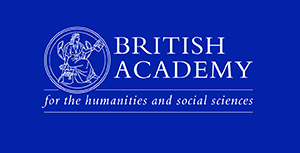Latest News Archive
Please select Category, Year, and then Month to display items
09 December 2020
|
Story UFS entral academic advising team
|
Photo Pixabay

It wasn’t easy, but we all got to this point because we stayed calm and made the effort to learn on even when it was difficult.
The University of the Free State (UFS) has remained committed to supporting you in every way possible, and as you prepare for the final assessments, remember to access the support tools you will need in order to successfully complete the 2020 academic year: https://www.ufs.ac.za/toolsforsuccess
Main exams are running from 30 November to 19 December 2020
All of the best, and break a pen in your upcoming final assessments. For those of you who will be graduating, we cannot wait to see you in that graduation attire; and those who still have some way to go, we cannot wait to serve you again in 2021 as we continue the pursuit of academic success!
Below are five main study tips that you can use for final assessment success:
1. Set a realistic study schedule
You might think that studying for eight hours straight for four days before the exam, will help you get through the work in time. See final edition of the #UFSLearnOn for more information.
2. Structure and organise your work
If your notes are organised, it is also easier for your brain to recall information, even when you become nervous during exams.
3. Practise with an old exam/semester test paper
Practice makes perfect, and although the final assessments might look different in how they are administered, it will still help to practise using old tests and exams.
4. Adapt your strategies to the content
What works for one module or even one learning outcome, might not be effective for another. You need to continually adapt your note-taking and study approaches. See #UFSLearnOn final edition for different study methods.
5. Healthy body, healthy mind
Your brain needs optimal care to perform at its best, and getting physically active (even if it is by jumping in one spot if space is limited) forces your body to release neurotransmitters responsible for positive emotions, which assist in retaining information in your memory …
Download the final edition of #UFSLearnOn that points you towards the resources you’ll need to ace your final assessments and end 2020 off on a high note!
Dr Cawood awarded prestigious British Academy Newton Advanced Fellowship
2016-08-02


“I am absolutely thrilled to be associated with such esteemed organisations as the Newton Fund and the British Academy.” This is what Dr Stephanie Cawood, from the Centre for Africa Studies (CAS) at the University of the Free State (UFS), had to say on being awarded a prestigious British Academy Newton Advanced Fellowship. It is part of the United Kingdom’s (UK) Official Development Assistance (ODA).
Grant will assist research on the meaning of museums, monuments, spaces, and discourse
She received a grant of £62,904 (R 1,177,949.35), that will enable her to conduct research that will compare how liberation struggles have been memorialised in South Africa and Uganda. The focus will be on museums, monuments, spaces, and discourse.
The idea is to analyse the relationship between memory, space, and power, said Dr Cawood. The project will run over three years, and will involve comparative fieldwork between liberation movements in South Africa and Uganda. Dr Johnathan Fisher from the International Development Department at the University of Birmingham will be Dr Cawood’s research partner. “Building a research network between the institutions involved is an important aspect of this research,” said Dr Cawood.
Fellowship will enhance international footprint and collaboration
“I believe it will contribute significantly to my intellectual engagement, career advancement, and international footprint”.
“I believe it will contribute significantly to my
intellectual engagement, career advancement,
and international footprint”
The award also has the potential to further relations at a broader level between the UFS and the University of Birmingham. It will also strengthen a collaborative relationship between the CAS and International Development Department.
The British Academy is the UK’s national body for championing the humanities and social sciences, and counts many world-leading scholars and researchers among its ranks.